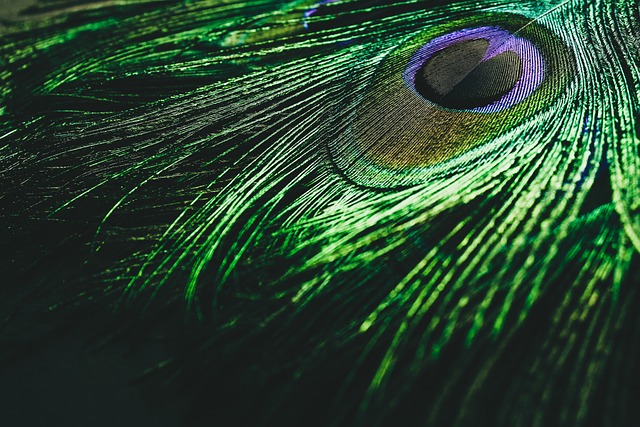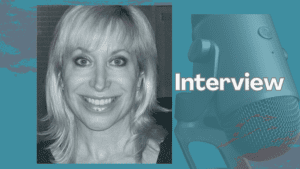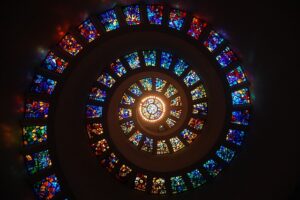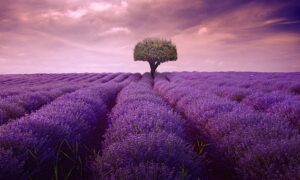It’s interesting to note that the first two chapters of Genesis (the beginning of creation) at the beginning of the Bible open with themes of creativity. God’s inspiration and creativity resulted in the creation of our world and us. God was the first Creator; His creativity was born out of love for us and this world.
God Has Knitted the Earth with the Healing Power of His Love
Since God created us and the rest of creation out of love, human creativity—the desire to create beautiful things—stems from our own loving connections with His creation. Since the first and purest form of creativity began with God, our relationship with Him imbues us with His love and creativity.
For me, taking walks in the wilderness or other natural places with the blues, greens, and yellows of the plants, water, and clear skies heals and restores my spirit. Such moments can also lead to expressive art, poetry, literary compositions, photographs, music, and so on—wonderfully creative and restorative occasions.
Yet, although we are capable of ethically pure creativity, some fall into a self-centered mentality with little regard for our neighbor or God’s other creations – as long as a profit is made. If we allow them to abuse the natural wonders and beauty around us, we may one day lose them; and with them go the healing and restorative places and creativity that so many of us crave.
Biodiversity is a Reflection of God’s Creativity
 In the natural worlds that I frequent, I never tire of seeing and appreciating the multitude and diversity of living things and their habitats. How refreshingly varied and colorful are the wildlife, plants, fish, and insects that inhabit those places! I glory in the creativity that provides these beautiful things as I breathe grateful prayers to our God, the Great Creator.
In the natural worlds that I frequent, I never tire of seeing and appreciating the multitude and diversity of living things and their habitats. How refreshingly varied and colorful are the wildlife, plants, fish, and insects that inhabit those places! I glory in the creativity that provides these beautiful things as I breathe grateful prayers to our God, the Great Creator.
Yet, I also witness people’s revulsion when encountering some of God’s creations – like snakes and spiders. They don’t understand or appreciate a snake’s beauty and efficiency, nor why spiders share the world with us. Without these “yucky critters,” we would be overrun with mice, rats, insects, frogs, toads, etc. (although each also plays an important role in the wildlife community). It takes spending time with them and understanding them to appreciate their useful nature…and the dislike disappears.
Since God’s creativity resulted in such a diverse creation, it stands to reason that God loves diversity. Like God’s creativity, biodiversity works together for the greater good, creating what we call “food chains” or “webs of life.” What a fitting reflection of His creative glory!
Since God Loves Diversity, Why Do So Many Dislike It?
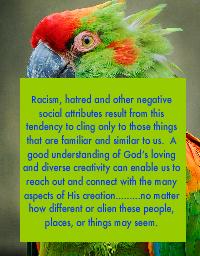
As a wildlife biologist, I realize that creativity and biodiversity happen all the time in healthy, natural places. Yet, I wonder why accepting human diversity in our brothers and sisters is so difficult. Why do people so readily object to persons, places, and things that are different?
Racism, hatred, and other negative social attributes result from this tendency to cling only to familiar and similar things. A good understanding of God’s loving and diverse creativity can enable us to reach out and connect with the many aspects of His creation, no matter how different or alien these people, places, or things may seem.
